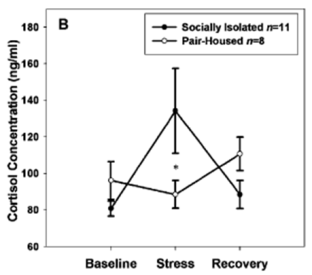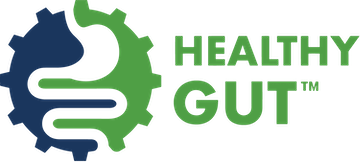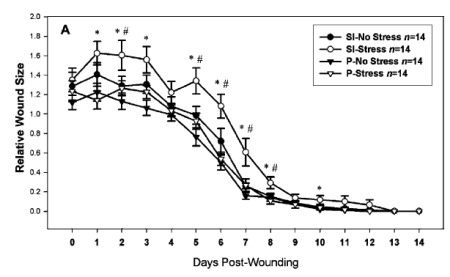Could Spending More Time with Friends and Family Help Reverse Chronic Illness?

“Sue, I’m sorry. I don’t know how to tell you this, but you have Cancer… maybe 18 months to live.”
Once the news hit, Sue signed early retirement papers and sold the house.
She moved to Florida to be closer to her kids and grand-babies…
She started mentoring inner-city kids and helping them get into college… something she never had time for in the past.
Friends and family made it a point to spend more time with her… taking road trips and weekend getaways.
12 months later, she was back in the Doctor’s office…
“Sue – I can’t explain it, but you’re in complete remission.”
Is it that far-fetched?
We’ve all heard stories that go something like this… could spending more time with friends and family help reverse chronic illness?
Is there any science to it?
Why Locking Yourself in the House Could Make You Worse
Typically, when animals are critically injured in the wild they’ll run to a safe, secluded place and lie down.
They give their body the resources to start healing and in some cases, they’ll lay there for days without moving. If the wound isn’t fatal, there’s usually a point when they know they need to get up and re-integrate with the herd….
But what’s fascinating is once the injured animals get back with the herd, their wound tends to heal FASTER than when they were in isolation.
A 2003 PNEC study on the Social Facilitation of Wound Healing, found that:
“Social interactions buffer against stress and promote wound healing… The data imply that social isolation impairs wound healing.”
The background on this study is interesting so I had to geek out on it (read the full text here). Scientists wanted to test the impact of social interaction on wound healing. For this study, they used Siberian hamster models separated into two test groups:
- The first group was completely isolated from social contact
- The second group was paired up and able to freely interact
- Each hamster received similar injuries and had their wounds measured to track the rate of healing. (I know it sounds bad… it’s in the name of science right?)
Here’s the fascinating twist: both groups of hamsters were split into two more groups and placed under stress every day (kind of like going to work)… so it looked like this:
- Socially isolated group: no stress
- Socially isolated group: stressed
- Paired up group: no stress
- Paired up group: stressed
The result?
The wounds stayed significantly worse in the socially isolated group than in the paired up group (P < 0.05). (See the cool chart below.)
[NOTE: P< 0.05 means statistical significance]
Image Ref: Social Facilitation of Wound Healing
The data led the authors to conclude that social isolation impairs (slows down) wound healing.
It made me think.
When I first started the SCD Diet and still had hardcore digestive problems… all I wanted to do was turn off my phone and lay in bed. I usually found ways to skip family time during the holidays and avoid my friends’ calls on the weekends.
Looking back, I can’t help but wonder if I slowed down my body’s natural ability to heal by spending less time with friends and family.
But let’s dig deeper…
What’s the Connection Between Social Interaction and Wound Healing?
It’s all about Cortisol… the “Fight or Flight” hormone. Cortisol gets a bad rap, but in the days of Woolly Mammoths it was critically important for staying alive.
During intense stress (like running for our lives), the Adrenal Glands release the “stress hormones” cortisol, epinephrine, and norepinephrine.
Why is that important?
These chemicals put our body into a state of “Fight or Flight,” which creates a short burst of heightened awareness and the energy to stay alive if we have to run away from a threat or even fight back.
In today’s modern lifestyle, rush-hour traffic, high-stress jobs, toxic chemicals, and toxic foods all replaced Woolly Mammoths… creating chronic stress in our lives. Chronic stress causes long-term elevated cortisol levels, and, even worse, disrupts the natural up-and-down cortisol rhythm throughout the day.
This can cause a myriad of bad stuff, like increased blood sugar, weakened immune system, leaky gut, hormonal imbalances, depression, anxiety, and mood imbalances…[1]
But more importantly, chronically elevated cortisol is associated with slower wound healing.[2] And data from both human and animal models have linked cortisol secretion with slower wound healing.[3]
Ok, so if most of us are under chronic stress and dealing with high cortisol, how does social interaction play into all of this?
Well, it’s all about Oxytocin… the “love hormone.”
Oxytocin is released in response to physical contact, social contact, and social bonding. In positive social situations, oxytocin can suppress your body’s reaction to chronic stress and improve immune function by decreasing the cortisol concentrations that are high during chronic stress.[4]
Remember the hamsters?
Here are the cortisol concentration readings from the two groups:

It’s been shown that psychological stress (and the correlating jump in cortisol) impairs wound healing.[5] As it turns out, the socially-isolated group experienced a profound jump in cortisol levels during the period of stress. This data led the authors to conclude that…
Social interactions buffer against the negative effects of stress and promote wound healing.
Though I’d like to review more studies validating this idea with humans, I think it raises an interesting point. Since most of us are dealing with chronic stress and elevated cortisol levels (slowing down our ability to heal), it seems important to spend time with family and friends to lower cortisol and encourage faster wound healing.
I acknowledge there’s more I haven’t reviewed surrounding the different stages of wound healing and how that plays into chronic illness…
…but it might make sense to conclude that…
Spending more time with family and friends can counteract the negative effects of chronic stress… and help you heal faster.
How to “Get Your Social Interaction On” (And Reverse Chronic Illness)
When we’re dealing with Chronic Illness, especially digestive disease or fatigue, it’s easy to feel like you “just want to be alone.”
But what I’m arguing here is that social interaction can be an important part of reducing the negative effects of stress on your body and help you heal from chronic illness faster. Many times, we get the diet and supplements right, then focus entirely on managing stress. But this offers another tool in the fight against our stressful, modern, lifestyle.
Here’s 3 ways to incorporate social interaction as part of your chronic illness treatment. Pick one and start testing it for the next seven days…
1. Get out of the house and do something social 1 day a week…
Go for a walk with your family or go see a movie with a friend (assuming you’re healthy enough for it).
Plan it into your life, alongside following SCD or taking supplements.
Give yourself an excuse to make new friends doing activities that don’t depend on food. Things like:
- Yoga class
- Volunteering
- Joining a club (like a book club, movie club, Eagles, etc.).
- Take hobby classes (Woodworking, instruments, etc.)
- Recreational Sports (softball, volleyball, etc.)
- Religious groups
- College courses on topics you’re interested in, and on and on…
2. Fix or end bad relationships…
This is a tough one, but it’s important. Mend a bad relationship or end it and move on. If you’re suffering with chronic illness, there’s no room for the negative effects these relationships have on your ability to recover. This is life or death…
Hostile or abrasive relationships affect physiological function and health… and slow wound healing.[6] Not only that, but having better control over feelings of anger has been shown to improve wound healing.[7]
Mend bad relationships or remove them from your life. You may be surprised how much better you’ll feel (and how much faster you heal) when they’re gone. The goal is to spend more time having fun with friends and family.
3. Practice being present and increasing your awareness…
Being present will help you have more fun with your friends and family. Not only that, but relaxation interventions seem to facilitate faster wound healing from things like surgery. [8]
I’ve practiced meditation over the years and it increased my awareness of the present moment and allowed me to experience more joy in my daily life. It can help you experience more joy from the relationships you have with your friends and family.
If you’re just starting out, I would recommend Jon Kabat-Zinn’s book, Wherever You Go There You Are.
I’ve been very impressed with his work in Mindfulness-Based Stress Reduction, which combines both Meditation and Yoga to improve physical and emotional health.
You can learn more about his methods in another one of his books, Full Catastrophe Living: Using the Wisdom of Your Body and Mind to Face Stress, Pain and Illness.
Social Interaction: Just as Important as Diet…
If you want to heal your gut and recover from chronic illness, it’s important to maintain social interaction in your life.
Make social interaction as important as your diet and supplements. Pick one of these three things and try it in your life for 7 days. Track your symptoms and see how you feel.
Go spend some time with friends and family and let us know how you’re doing…
In good health,
P.S. – For extra credit, laugh every day! Try looking at pictures of smiling faces when you wake up, like pictures of your family, or pictures that make you smile.
You can automate the process here: http://www.ajokeaday.com
Did You Like this Article?
Subscribe to our newsletter to receive email notifications, some ways to find relief, and next steps.

